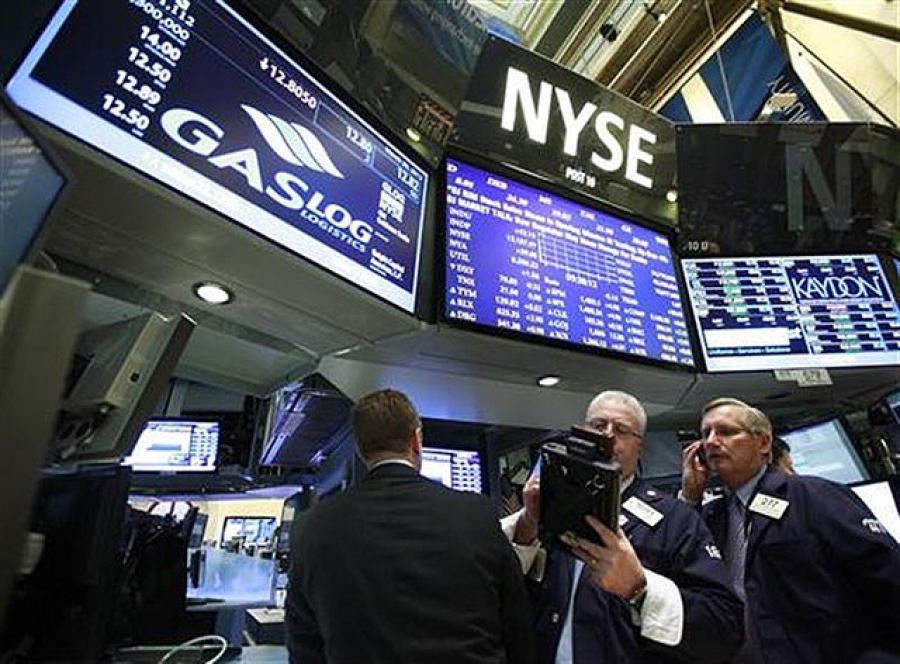On Friday, Shares of SunEdison, Inc. (NYSE:SUNE), lost -11.40% to $10.72, hitting its lowest level.
SunEdison declared that it has closed financing and begun construction on one of its largest solar power plants to date, the 156 megawatt (MW) DC / 120 MW AC Comanche Solar project in Pueblo, Colo. When accomplished, the Comanche Solar project will be the largest solar power plant east of the Rocky Mountains.
“The Comanche Solar project demonstrates SunEdison’s ability to deliver renewable energy at a price competitive with conventional resources,” said Paul Gaynor, SunEdison executive vice president for EMEA and the Americas. “In addition, the Comanche Solar project will be financed through SunEdison’s $1.5 billion non-recourse, First Reserve Warehouse. This facility is designed to expand as projects move into construction without incremental equity contributions by SunEdison.”
The Comanche solar power plant will be the largest in Colorado and is predictable to produce more than 300 gigawatt-hours of energy a year, enough to power about 30,000 Colorado homes. The solar power plant will avoid the emission of more than 478 million pounds of carbon dioxide, the equivalent of taking more than 45,000 passenger vehicles off the road.
SunEdison, Inc. develops, manufactures, and sells silicon wafers to the semiconductor industry. The company operates through three segments: Solar Energy, TerraForm Power, and Semiconductor Materials.
Shares of Merck & Co. Inc. (NYSE:MRK), declined -2.07% to $55.77, during its last trading session.
Merck & Co., known as MSD outside the United States and Canada, in conjunction with the U.S. Consumer Product Safety Commission (CPSC) recently asked that all customers, counting patients, inspect all bottles of TEMODAR® (temozolomide) capsules and all bottles of Temozolomide capsules (generic) for potential cracks in the child-resistant bottle caps. The medicine is manufactured by Merck and distributed in the United States by Merck as TEMODAR. The Temozolomide capsules (generic) are manufactured and packaged by Merck but sold and distributed by Sandoz, the authorized generic partner, under the Sandoz label. In addition to these supplies, Merck also provides TEMODAR in the United States in sachets (or pouches); TEMODAR in sachets are not affected.
Merck believes that about 1,100 bottles out of an estimated 276,000 distributed bottles of TEMODAR and Temozolomide capsules (generic) could potentially have cracked caps. Those bottles could be at wholesalers, pharmacies, healthcare providers or with patients. The bottle label will say it is offered by Merck & Co. or by Sandoz (for the generic).
Merck & Co., Inc. provides health care solutions worldwide. The company offer therapeutic and preventive agents to treat cardiovascular, type 2 diabetes, asthma, nasal allergy symptoms, allergic rhinitis, chronic hepatitis C virus, HIV-1 infection, fungal infections, intra-abdominal infections, hypertension, arthritis and pain, inflammatory, osteoporosis, male pattern hair loss, and fertility diseases.
Finally, Whiting Petroleum Corp. (NYSE:WLL), ended its last trade with -7.04% loss, and closed at $15.84, hitting its lowest level, as U.S. oil fell below $40 per barrel on Friday, as traders continued a rout that is likely to hand the futures contract its longest string of successive weekly losses since the bust of 1986.
The march below $40 has been on the horizon for weeks as oil prices plunged in July, fueling a fresh round of anxiety in the industry, said Rusty Braziel, president of Houston-based energy analysts RBN Energy.
Whiting Petroleum Corporation, an independent oil and gas company, acquires, explores, develops, and produces crude oil, natural gas liquids, and natural gas in the Rocky Mountains and Permian Basin regions of the United States. It sells oil and gas to end users, marketers, and other purchasers.
DISCLAIMER:
This article is published by www.wsnewspublishers.com. The Content included in this article is just for informational purposes only. All information used in this article is believed to be from reliable sources, but we make no representations or warranties of any kind, express or implied, about the completeness, accuracy, or reliability with respect to this article.
All visitors are advised to conduct their own independent research into individual stocks before making a purchase decision.
Information contained in this article contains forward-looking information within the meaning of Section 27A of the Securities Act of 1933 and Section 21E of the Securities Exchange Act of 1934, counting statements regarding the predictable continual growth of the market for the corporation’s products, the corporation’s ability to fund its capital requirement in the near term and in the long term; pricing pressures; etc.
Any statements that express or involve discussions with respect to predictions, expectations, beliefs, plans, projections, objectives, aims, assumptions, or future events or performance may be forward looking statements. Forward-looking statements are based on expectations, estimates, and projections at the time the statements are made that involve a number of risks and uncertainties, which could cause actual results or events to differ materially from those presently anticipated. Forward looking statements may be identified with such words as expects, will, anticipates, estimates, believes, or by statements indicating certain actions may, could, should/might occur.



